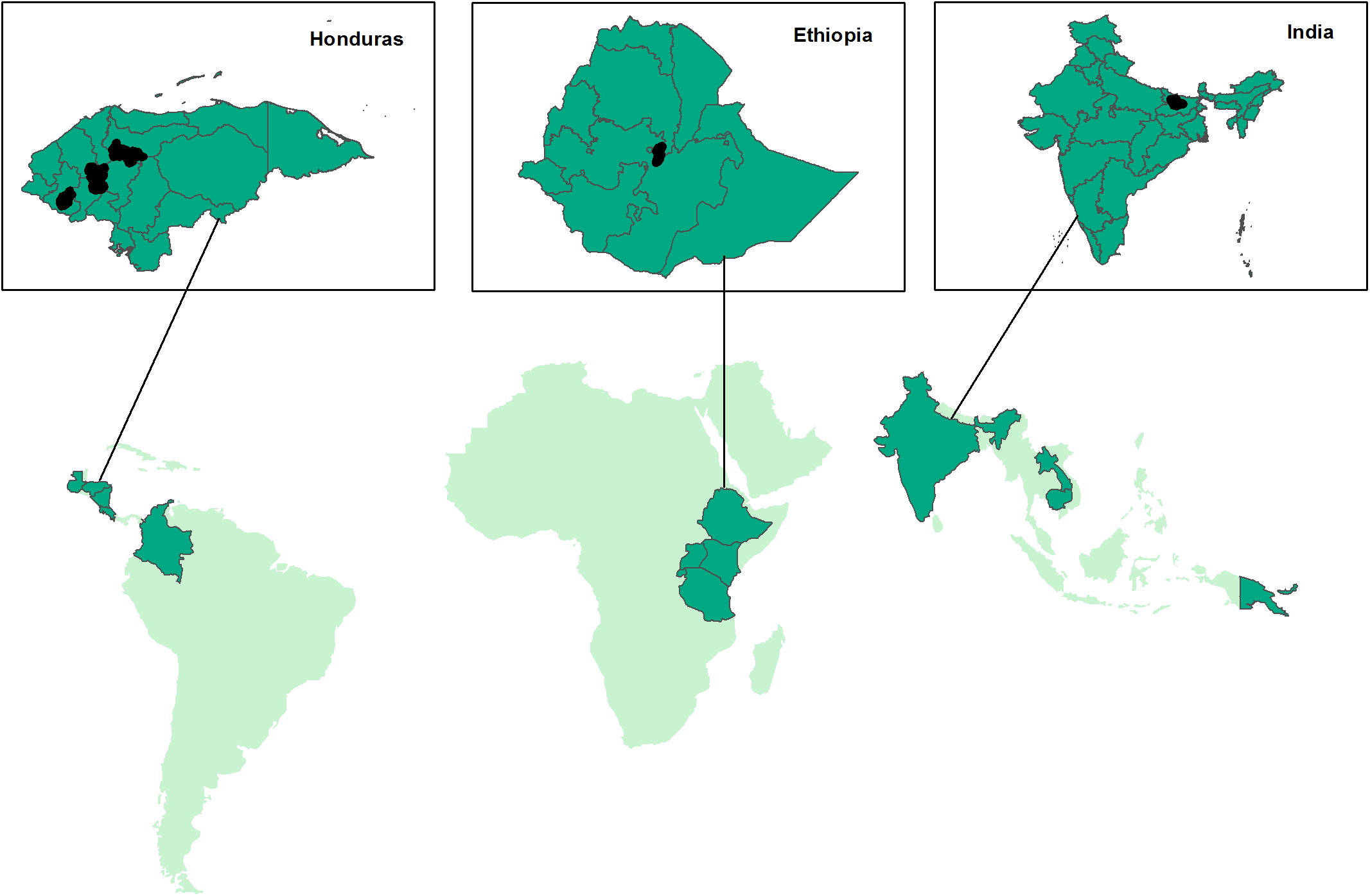Agricultural workers have long been collecting data on the natural world, but opening up opportunities for farmers to share information raises questions about who would participate and why. This study is unusual for involving farmers in developing countries as potential stakeholders in citizen science, for whom participation may be meaningfully connected to livelihood. While most farmers in all three countries (Honduras, India, & Ethiopia) owned and regularly used cell phones for information purposes, their usage patterns, preferences, and needs were quite different from the users targeted by most citizen science projects, so the results clearly reinforce the importance of culturally-sensitive project and technology designs. — AW, Guest Editor
Abstract:
As the sustainability of agricultural citizen science projects depends on volunteer farmers who contribute their time, energy and skills, understanding their motivation is important to attract and retain participants in citizen science projects. The objectives of this study were to assess 1) farmers’ motivations to participate as citizen scientists and 2) farmers’ mobile telephone usage. Building on motivational factors identified from previous citizen science studies, a questionnaire based methodology was developed which allowed the analysis of motivational factors and their relation to farmers’ characteristics. The questionnaire was applied in three communities of farmers, in countries from different continents, participating as citizen scientists. We used statistical tests to compare motivational factors within and among the three countries. In addition, the relations between motivational factors and farmers characteristics were assessed. Lastly, Principal Component Analysis (PCA) was used to group farmers based on their motivations. Although there was an overlap between the types of motivations, for Indian farmers a collectivistic type of motivation (i.e., contribute to scientific research) was more important than egoistic and altruistic motivations. For Ethiopian and Honduran farmers an egoistic intrinsic type of motivation (i.e., interest in sharing information) was most important. While fun has appeared to be an important egoistic intrinsic factor to participate in other citizen science projects, the smallholder farmers involved in this research valued ‘passing free time’ the lowest. Two major groups of farmers were distinguished: one motivated by sharing information (egoistic intrinsic), helping (altruism) and contribute to scientific research (collectivistic) and one motivated by egoistic extrinsic factors (expectation, expert interaction and community interaction). Country and education level were the two most important farmers’ characteristics that explain around 20% of the variation in farmers motivations. For educated farmers, contributing to scientific research was a more important motivation to participate as citizen scientists compared to less educated farmers. We conclude that motivations to participate in citizen science are different for smallholders in agriculture compared to other sectors. Citizen science does have high potential, but easy to use mechanisms are needed. Moreover, gamification may increase the egoistic intrinsic motivation of farmers.
Source: Beza, E., Steinke, J., van Etten, J., Reidsma, P., Fadda, C., Mittra, S., et al., 2017. What are the prospects for citizen science in agriculture? Evidence from three continents on motivation and mobile telephone use of resource-poor farmers. PLoS ONE 12(5): e0175700. https://doi.org/10.1371/journal.pone.0175700
